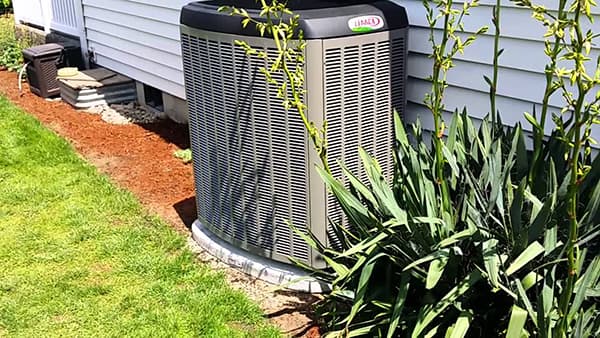
You’re faced with a dilemma: should you repair your existing heating, ventilation, and air conditioning ( HVAC System Upgrades ) system or install a new one? It’s a crucial decision that can impact your wallet and comfort level. If you’re unsure, it’s essential to weigh the pros and cons of each option. You might be wondering, “Is it worth fixing my current system, or should I invest in a new one?” The answer lies in understanding your system’s condition, and that’s where we’ll start exploring – but first, let’s take a closer look at the signs that your system is failing.
Identifying System Failure Points
When your heating, ventilation, and air conditioning (HVAC) system breaks down, it’s essential to identify the failure points quickly to minimize downtime and costly repairs.
You’ll need to troubleshoot the problem to determine if it’s a faulty sensor, a refrigerant leak, or a worn-out compressor. Check the thermostat settings to ensure they’re correct and the system is receiving power.
Inspect the air filters, ducts, and vents for blockages or damage. If you’re not comfortable with DIY troubleshooting or if the issue persists, it’s best to call a professional HVAC technician.
They’ll have the necessary tools and expertise to diagnose the problem and provide a solution. Identifying the failure points quickly will help you decide whether repair or replacement is the best option for your system.
Weighing Cost and Efficiency
Your HVAC system’s efficiency and cost are intertwined, and understanding their relationship is crucial in deciding between repair and replacement.
When your system is running efficiently, it consumes less energy, which reduces your utility bills. On the other hand, an inefficient system will drive up your costs.
You need to consider the cost of repairs versus the cost of a new system.
If the cost of repairs is close to the cost of a new system, it might be more economical to replace it.
A new system will provide long-term savings and improved efficiency.
Additionally, modern HVAC systems are designed with energy efficiency in mind, so you’ll likely see a significant reduction in your energy bills.
Weighing the cost and efficiency of your system will help you make the best decision for your wallet and comfort.
Considering System Age Factors
As you weigh the cost and efficiency, another key factor to consider is the age of your HVAC system.
If your system is relatively new, it’s likely still under warranty, and repairs might be the way to go. On the other hand, if it’s nearing the end of its expected lifespan (typically 10-15 years for AC units and 15-20 years for furnaces), replacement might be a better option.
You should also think about how well your system has been maintained.
If you’ve been keeping up with regular tune-ups and cleaning, your system might still have some life left. But if you’ve neglected maintenance, your system might be nearing the end of its lifespan, even if it’s not that old.
Considering your system’s age will help you make a more informed decision about whether to repair or replace it.
Evaluating Repair Vs Replace Options
Beyond the system’s age, you need to crunch some numbers to evaluate repair versus replace options.
Calculate the cost of the repair, including parts and labor. Don’t forget to factor in any potential future repairs that might be needed soon. If you’re already investing a significant amount in a repair, it might be more cost-effective to replace the system altogether.
Next, consider the system’s energy efficiency. If your system is old and inefficient, you might be wasting money on energy bills.
A new system can provide significant savings over time. Weigh these potential savings against the upfront cost of a new system.
You should also consider the system’s reliability. If you’re constantly calling for repairs, it might be time to consider replacing the system.
The cost of frequent repairs can add up quickly, and you’ll also need to consider the inconvenience and potential damage to your home. By considering these factors, you can make an informed decision about whether to repair or replace your HVAC system.
Making the Final Decision
The repair-or-replace dilemma boils down to one crucial question: what’ll it cost you in the long run?
Consider the total cost of ownership, including the initial investment, maintenance, repairs, and energy consumption. Weigh these costs against the benefits, such as increased energy efficiency, improved indoor air quality, and extended system lifespan.
You’ve evaluated your system’s condition, considered your budget, and weighed the pros and cons.
Now, it’s time to make a decision. Ask yourself: Will repairing your current system provide the performance and efficiency you need, or will it be a temporary fix? Will a new installation offer long-term savings and peace of mind?
Consider your priorities and make a decision that aligns with your goals and budget. Remember, the cheapest option upfront may not be the most cost-effective in the long run.
Conclusion
You’ve weighed the costs, considered the age, and evaluated your options. Now, it’s time to make a decision that’s right for you. If repairs are cost-effective and your system is relatively new, fix it. But if it’s old, inefficient, or breakdowns are frequent, it’s time to replace. Consider your goals, budget, and long-term savings. Whatever you choose, you’ll be breathing easy in no time.

